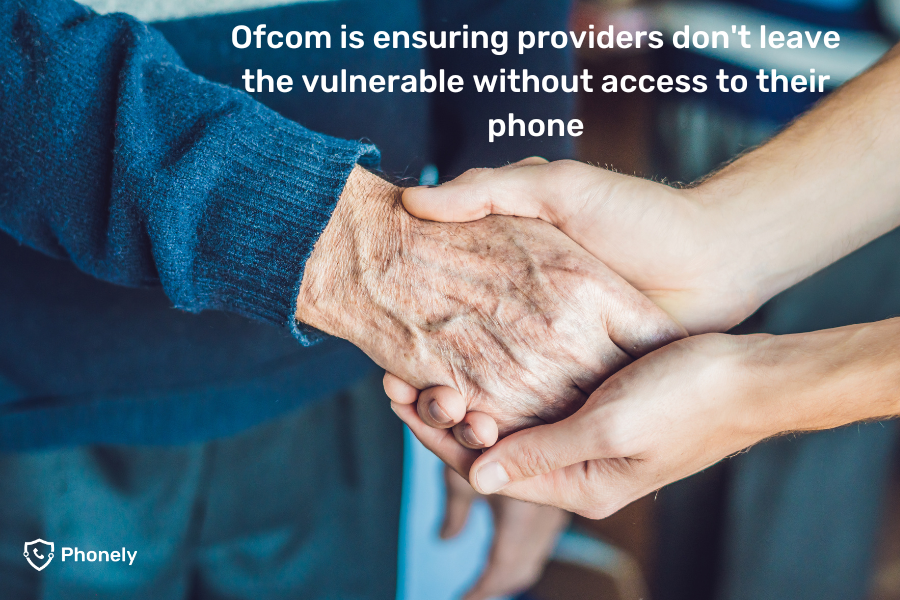There is a lot of confusion surrounding why BT Openreach are phasing out the traditional copper wire network (PSTN) and moving towards digital voice. So, in good old Phonely fashion, we’ve unpacked the reasoning behind BT changing to digital voice and explored what it means for you and your home phone.
BT changing to digital voice & the PSTN phase-out: A story from 2017
The announcement to switch off the PSTN (Public Switched Telephone Network), which has served the UK for more than a century, came in 2017. And believe us when we say that this decision wasn’t made lightly. You may not be aware, but the copper network is ageing poorly, making it expensive to maintain and prone to faults. This has left customers and businesses alike frustrated with the lack of reliability and the increase in monthly bills. Additionally, the PSTN struggles to meet the growing demands of modern communication needs.

Why are we embracing digital voice?
In the age of the Internet, the move to digital voice seems natural. Just like the switch from analogue TV to digital TV back in 2012. Of course, it’s normal to have some reservations about this change. Be rest assured though, digital phone lines offer plenty of benefits for everyone:
- Crystal-clear calls: Say goodbye to crackles & interruptions. No more “Huh? I didn’t hear you…” Digital voice delivers crisp & reliable audio quality.
- Enhanced features: With digital voice, you get a world of features that you’ll wonder how you managed without. These include auto-call blocking, voicemail, & caller ID.
- Future-proof technology: The digital network is built to handle the ever-increasing demands of internet connectivity. Adopting a digital landline means no more changes in the future.
- Cost-effective potential: In many cases, digital voice plans are more affordable than traditional landlines. This means you’ll have more money in your pocket each month.

Addressing concerns: Power outages & digital voice
You may have read about one particularly common concern about digital voice. Its reliance on internet connectivity and electricity. So, what happens to your digital voice phone during a power cut? The straight answer is that you won’t be able to use it. But there are some things you can do to ensure you’re power cut prepared and won’t be completely cut off, especially in the case of an emergency.
- Mobile backup options: Most digital voice providers offer mobile backup solutions. During a power outage, you can still receive and make calls through your mobile phone, even using your home number.
- Battery backup systems: Investing in a battery backup system for your router ensures your phone remains usable even during short power cuts.
Of course, these options are not without their own issues. Some people live in a low mobile phone signal area, meaning their mobiles cannot be used as a backup. And it also hasn’t escaped us, or Ofcom that a battery backup will not last more than a few hours. Here at Phonely, our tech team are working tirelessly to find a better solution should a power failure happen. And Ofcom is ensuring that providers don’t leave those who are vulnerable without their essential lifeline to the outside world.

A smooth transition for everyone
Initially, BT Openreach had the intention of retiring the PSTN in December 2025. However, this has now been extended to January 2027. This extra time allows:
- Providers to protect vulnerable individuals: Those who are classed as vulnerable will not be moved over to digital voice until there is reasonable access to emergency services should the power fail.
- Alarm & telecare providers to update their systems: Most telecare & alarm systems aren’t compatible with digital voice. Providers now have time to update their equipment to continue to keep their customers safe.
The assurance that digital voice will be a smooth and inclusive transition is backed by a charter signed by major providers, including BT, Openreach, and TalkTalk.

Why Phonely is your perfect partner in the digital voice journey
At Phonely, we understand the importance of reliable communication, especially for vulnerable individuals. That’s why we offer a range of digital voice plans that are crystal-clear, affordable, and packed with helpful features.
But we go a step further with our unique CallGuard service. CallGuard acts as a shield against unwanted or scam calls. It helps to:
- Deter scam callers: The anti-fraud introduction makes scammers think twice before the call is connected to you.
- Give you confidence: You’ll have instant human backup & intervention if you decide you need it, with a trusted person & live call joining.
- Protect your privacy: By blocking out unwanted calls to prevent your personal information from falling into the wrong hands.
The added layer of security that CallGuard offers is vitally important in a world where phone scams are sadly on the rise.

Embrace the future with Phonely
With BT changing to digital voice, at Ponely we want you to see the move to digital landlines as a positive step towards a more advanced and reliable communication for your home. By understanding the benefits and having the right support system in place, you can embrace the future with confidence.
At Phonely, we’re here to guide you through every step of the transition. We believe that new technology should not be a barrier for anyone. So if you need someone to help you through the move to digital voice and the whole set-up, our UK-based team can talk you through it step by step.

Leave a Reply